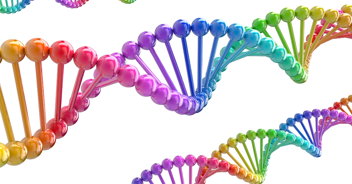Top 10 Ancestry Research Services in 2023: Expert Picks and Comparison
In recent years, there has been a remarkable surge in the interest and desire among individuals to understand their ancestral roots. People are increasingly drawn to uncovering their family history and connecting with their past, driving the popularity of ancestry research services. These services play a pivotal role in facilitating the journey of self-discovery by providing access to historical records, DNA analysis, and research tools that enable individuals to trace their lineage and gain insights into their heritage
The growing fascination with ancestral roots can be attributed to several factors. Firstly, in an increasingly globalized world, people are seeking a sense of belonging and connection to their cultural and historical origins. Discovering one's ancestry not only provides a deeper understanding of personal identity but also allows individuals to explore the rich tapestry of their heritage, including traditions, customs, and the experiences of their ancestors.
Furthermore, advancements in technology and the accessibility of vast digital databases have revolutionized the field of genealogy. Ancestry research services leverage these technological innovations, combining DNA analysis, machine learning, and expansive historical record collections to offer unprecedented opportunities for uncovering family history. These services have made it easier than ever before to delve into the past, allowing individuals to trace their roots across generations, continents, and time, unravelling the stories and connections that make up their family's unique narrative.
Factors Considered in Ranking the Top Ancestry Research Services:
When ranking the top ancestry research services, several factors are taken into consideration to assess their overall quality, reliability, and user experience. Here are ten key factors considered in evaluating and ranking these services:
- Accuracy: The accuracy of the service's DNA testing and the reliability of their genealogical data are crucial factors. Services with high accuracy in DNA analysis and well-curated, verified historical records are given priority.
- User Experience: The usability and intuitiveness of the service's platform and interface play a significant role. Services that offer a seamless and user-friendly experience, making it easy to navigate through records, build family trees, and access relevant information, are highly regarded.
- Technological Advancements: Services that leverage innovative technologies, such as artificial intelligence and machine learning, to enhance DNA analysis, record matching, and data interpretation, are favored for their ability to provide more comprehensive and detailed results.
- Customer Support: The quality and responsiveness of customer support services are considered. Prompt and knowledgeable assistance can greatly enhance the user experience and help resolve any issues or inquiries effectively.
- Reputation and Trustworthiness: The service's reputation, credibility, and track record are assessed based on user reviews, industry recognition, and the service's commitment to data privacy and security.
- Research Tools and Features: The availability and effectiveness of research tools and features, such as advanced search capabilities, historical document analysis, DNA matching algorithms, and collaboration features, are evaluated.
- International Records: The extent and quality of international records in the service's database are taken into account. Services with a diverse collection of records from various countries and regions increase the chances of tracing ancestry beyond national borders.
- DNA Testing Options: The range of DNA testing options offered by the service, including autosomal, Y-DNA, and mitochondrial DNA testing, is considered. Services that provide comprehensive testing options cater to different research goals and interests.
- Pricing and Subscription Options: The affordability and flexibility of pricing plans, including free trials, subscription options, and one-time purchase alternatives, are assessed. Services that offer reasonable pricing options and value for money are given preference.
By considering these ten factors, a comprehensive evaluation of the top ancestry research services can be made, enabling individuals to make informed decisions based on their specific needs and preferences.
The Top 10 Ancestry Research Services in 2023:
The experts picked the following ancestry research services as the top 10 for 2023:
- AncestryDNA: AncestryDNA offers DNA testing and access to its extensive database of genealogical records. They provide detailed ethnicity estimates and DNA matches to help users discover their family history.
- MyHeritage: MyHeritage provides DNA testing services and access to a vast collection of historical records, including census records, birth and marriage certificates, and more. Their platform also offers a robust family tree builder.
- 23andMe: Known for their DNA testing kits, 23andMe provides users with genetic ancestry reports, health information, and the ability to connect with DNA matches. They also offer some genealogical research tools.
- FamilySearch: FamilySearch is a free genealogy platform operated by The Church of Jesus Christ of Latter-day Saints. They have an extensive collection of historical records, family trees, and collaborative features.
- Findmypast: Findmypast offers access to a wide range of historical records, including census data, birth and marriage records, military records, and more. They have a strong focus on British and Irish genealogy.
- Living DNA: Living DNA provides DNA testing and offers detailed regional ancestry breakdowns. They emphasize the British Isles but also cover other regions.
- Archives: Archives.com provides access to various records, including census records, military records, immigration records, and newspapers. They offer a subscription-based model.
- Geni: Geni is a collaborative genealogy platform that allows users to build their family trees and connect with relatives. It emphasizes social networking and collaboration among users.
- WikiTree: WikiTree is a free online platform that encourages collaboration and the creation of accurate and well-sourced family trees. Users can contribute and edit profiles, ensuring the accuracy of information.
- DNA Painter: DNA Painter is a unique tool that helps users visualize and analyze DNA matches and segment data. It allows for DNA analysis and mapping of genetic connections.
Remember that each service has its own strengths and weaknesses, and the choice ultimately depends on your specific research goals, budget, and preferences. Conducting further research and reading user reviews can provide more insight into each service's features and user experiences.
Comparing Ancestry Research Services on Price and Accessible Resources
When choosing an ancestry research service, it's important to consider pricing options and the resources available. Evaluate the service's pricing models, including free trials, subscription plans, and one-time purchases. Consider the affordability and flexibility of each option. As well, Examine the types of records and resources available on each platform. Look for a wide range of data, including census records, birth and death certificates, immigration records, military records, and more. Below is a pricing comparison as it related to the top 10 sites.
AncestryDNA:- Price: AncestryDNA DNA testing kits are usually priced around $99.
- Subscription: Ancestry offers subscription plans starting at $24.99 per month or $189 for an annual subscription.
MyHeritage:
- Price: MyHeritage DNA testing kits are typically priced at $79.
- Subscription: MyHeritage offers subscription plans starting at $129 for a yearly plan or $189 for a two-year plan.
23andMe:
- Price: 23andMe offers DNA testing kits priced at $99 for their Ancestry + Traits Service and $199 for their Health + Ancestry Service.
- No subscription is required.
FamilySearch:
- Price: FamilySearch is a free genealogy platform and does not charge for access to their records or features.
- No subscription required
Findmypast:
- Price: Findmypast offers subscription plans starting at $10.95 per month or $120 for an annual subscription.
Living DNA:
- Price: Living DNA DNA testing kits are typically priced at $99.
- Subscription: Living DNA offers a subscription plan at $49 per year for enhanced features and access to more detailed reports.
Archives:
- Price: Archives.com offers a subscription plan starting at $9.99 per month or $99.99 for an annual subscription.
Geni:
- Price: Geni offers free access to their basic features. However, they also provide a subscription plan called "Geni Pro" at $119.40 per year, which includes additional benefits.
WikiTree:
- Price: WikiTree is a free platform and does not charge for access to its features.
- Price: DNA Painter offers both a free version and a subscription plan called "DNA Painter Plus" priced at $5 per month or $50 per year, which provides advanced features and benefits.
It's important to note that pricing and subscription options are subject to change, so it's advisable to visit the respective websites for the most up-to-date information. Additionally, some services may offer discounts or promotions from time to time, so it's worth checking for any ongoing deals.
Tips for Choosing the Right Ancestry Research Service for You:
To select the best ancestry research service based on individual needs and preferences, consider the following tips:
- DNA Testing: If you're interested in exploring your genetic heritage, choose a service that offers comprehensive DNA analysis alongside traditional genealogical research.
- International Records: If your family has roots outside your home country, opt for a service with a vast collection of international records to increase your chances of tracing your ancestry accurately.
- Expert Assistance: If you're new to genealogy or need assistance with challenging research quests, prioritize services that provide access to expert genealogists who can guide you.
- Research Tools and Features: Assess the research tools and features offered by each service. Look for features such as family tree builders, historical document analysis, and collaborative platforms to enhance your research experience.
- Data Privacy and Security: Ensure that the service you choose has a strong commitment to data privacy and security. Look for services that have transparent privacy policies, secure data storage practices, and give you control over how your data is used and shared.
- Geographic Focus: Some ancestry research services may have a specific geographic focus, such as specializing in certain regions or countries. If you have a specific geographic area of interest, consider services that align with your research goals.
- Collaboration and Community: If you enjoy collaborating with other researchers or connecting with relatives, look for services that offer a strong community aspect. This can include features like discussion forums, message boards, or the ability to connect with other users who may share a common ancestry.
- Historical Context and Insights: Consider whether the service provides historical context and insights to help you better understand your ancestors' lives within the broader historical context. This can greatly enhance your research experience and provide a deeper understanding of your family's story.
- Mobile Apps and Accessibility: If you prefer to access your ancestry research on the go, consider services that offer well-designed mobile apps. Mobile apps can allow you to conveniently access your family tree, search records, and receive notifications while on your smartphone or tablet.
Remember to evaluate these considerations based on your personal preferences, research goals, and budget. It's also a good idea to read user reviews, explore the service's website, and take advantage of any free trial offers to get a firsthand experience before committing to a particular ancestry research service.
Summary:
Understanding one's ancestral roots has gained significant popularity, leading to a wide range of ancestry research services available today. When choosing the right service, several key considerations should be taken into account. Firstly, if DNA analysis is of interest, opt for a service that offers comprehensive DNA testing alongside traditional genealogical research. Additionally, if your family has international roots, prioritize services with vast collections of international records to enhance the accuracy of tracing your ancestry. Expert assistance is also valuable, particularly for beginners or those facing challenging research quests. Services with access to genealogical experts can provide valuable guidance and support.
Furthermore, the research tools and features provided by each service play a crucial role. Look for services with robust features such as family tree builders, historical document analysis, and collaborative platforms to enhance your research experience. It's also essential to consider the service's focus on data privacy and security, ensuring they have transparent policies and secure data storage practices. Additionally, take into account the geographic focus of the service to align with your research goals, and evaluate the availability of collaboration and community features if you enjoy connecting with other researchers or relatives. Lastly, mobile apps can provide convenience, so consider services that offer well-designed mobile applications for on-the-go access to your research.
To make an informed decision, it is advisable to read user reviews, explore the service's website, and take advantage of any free trial offers to gain firsthand experience. By carefully considering these factors, you can select the ancestry research service that best aligns with your individual needs, preferences, and budget, ultimately embarking on a fulfilling journey of discovering your family history.


Article by Carol Walsh
Carol Walsh is the CEO of Creative Roots, a professional genealogy company. She has a passion for preserving family history and storytelling. Carol's research methodology centers around fact-finding and publishing in a format that readers can use to preserve the stories. Her ultimate goal is to help families connect with their past and each other.





